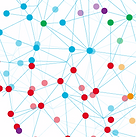
collaborative thinking - collective action
WORKSHOP CATALOGUE
TEAMWIN is used to enhance workshops and conferences around the world. The most common application is to mobilise projects and strategic initiatives (kick-offs and pit-stops for planning, roll-out and implementation). To complement our experience in managing core operational risks involving people, processes and systems, we have developed the capabilities required to address the growing convergence of new and unfamiliar risk categories that have beset global businesses.
In conjunction with subject matter experts and alliance partners, we have designed a series of ‘resilience-building’ events primarily intended to help specialists within organisations 1) enhance their own understanding and knowledge, and 2) more effectively guide their operational colleagues across different levels, functions and regions. These can form the beginning of a replicable process across the organisation or group of organisations, fostering multi-disciplinary collaboration and different ways of working.
Whether the digital revolution makes or breaks your business or operation will likely depend on the underpinning ‘digital integration’ necessary to optimise the customer experience. This pit-stop is designed for cross-functional groups to review their ‘digital journey’ to date, and look forward to refocus and re-energise. It addresses today’s confluence of factors, from the digitisation of business processes, e-commerce revolution and digital money, to the evaporation of brand differentiation and customer loyalty.
In today’s inter-connected and volatile world, the future of your organisation may well depend on the ability of key decision-makers to navigate the direct and indirect impact of highly complex geopolitical factors. Doing so successfully involves leveraging existing relationships and generating new connections, mitigating against cognitive biases common to both experts and decision-makers, and accessing the latent 'wisdom' across the organisation. Our process prompts the need for a new level of creativity and joined-up thinking in addressing these issues.
As the magnitude, complexity and incidence of man-made or natural disasters requiring international support escalates, this workshop provides vital skills for those working in emergency response, with a specific focus on dilemma resolution through collaboration. It combines expertise from the non-profit and private sectors to address recognised inefficiencies in the humanitarian sector that are a result of complexity, circular debates, reactive decision-making, fragmentation and short-termism. Groups will be better equipped to arrive at actions on the basis of informed decisions that take into account the different – and occasionally conflicting – aspects of the humanitarian imperative, local perceptions, security considerations, conflict sensitivity, protection and risk management.
A large proportion of FTSE 100 companies have been implicated in press reports of human rights abuses in the last ten years, despite the many thorough policies and procedures that companies have introduced (European Centre for Corporate Justice, 2014). With the growing pressure to “know and show” that multinationals are managing human rights and related bribery and corruption risks effectively, there are also emerging opportunities to be recognised for effective action (e.g. the upcoming global index, the Corporate Human Rights Benchmark). This workshop uses tailored case studies and structured dialogue to ‘stress test’ whether a company’s internal processes and culture will sustain inevitable shocks to its ability to protect against business-related human rights abuse, and where they do occur, to provide effective remedy for those affected.
Scenario planning is powerful for decision-makers and planners to develop strategies that keep the short- and the long-term in healthy tension. Carefully designed scenarios prepare people to become more resilient in the face of change, and introduce them to those they must interact with when certain contingencies arise. We help clients to identify what expertise should be integrated into such a planning discussion, and offer insights into how to anticipate and assess macro political and economic risks with accuracy and confidence - and how to put 'black swan' events or ‘wild cards’ in context. These build the capacity of both early-career and experienced analysts seeking insight into how to manage information and expertise.
It is widely acknowledged that the start-up is the most important and difficult stage of a clinical trial and has the poorest performance record, usually causing subsequent revenue loss for the client through delays and costly recurring problems for the CRO during the life of the study. A rapid and effective project kick-off, plus sustained high performance teamwork and leadership, lead to improved effectiveness within individual projects and across the business. Numerous clinical project managers and their teams have benefited from customised TEAMWIN-based kick-off, pit-stop and close-out workshops around the world.







